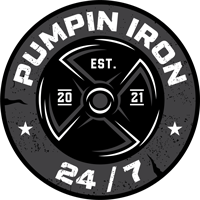What is protein, and why do we need it?
Protein is a crucial nutrient composed of amino acids that the body utilises to produce hormones and enzymes, and to build and repair cells, muscles, and bones. It supports proper growth and development across all life stages and plays a key role in muscle growth, maintenance, and recovery. While our bodies can synthesise some amino acids, others are essential and must be obtained through our diet.
Protein can be found in various foods such as lean meats, poultry, eggs, nuts, legumes, beans, fish, and seafood. Each food source contains a different combination of amino acids, underscoring the importance of consuming a diverse range of these foods to ensure adequate intake of essential amino acids.
How much protein per day?
Daily protein requirements vary based on factors like activity level, muscle mass, gender, weight, and fitness objectives. For sedentary adults, the Dietary Reference Intake Report (RDI) recommends consuming 0.8 grams of protein per kilogram of body weight daily, or between 10% and 35% of total calorie intake. However, many individuals require more protein than this minimal recommendation.
While the average sedentary adult's protein needs are clear, we emphasise that active individuals require higher protein intake to maximise its benefits. Recent research suggests a daily protein intake of around 30% of total calories, which for someone consuming 2000 calories per day equates to 600 calories from high-protein foods. This level of protein consumption not only supports muscle health but also aids in weight management and addresses increased protein needs associated with aging.
Daily Protein Intake Depending on Gender
Protein requirements differ between genders due to variations in muscle mass and calorie intake. Using the 30% guideline, a female consuming 2000 calories daily would aim for 600 calories from protein, while a male consuming 2500 calories would target 750 calories from protein.
Daily Protein Intake for Muscle Growth and Weight Loss
Protein intake is closely tied to muscle mass; hence, individuals aiming to build muscle typically require between 1.6 and 2.2 grams of protein per kilogram of body weight daily, combined with resistance training. For example, an 80kg male would need approximately 130 to 175 grams of protein per day.
Conversely, individuals looking to lose weight should prioritize fat loss while preserving lean body mass. A high-protein diet is beneficial in weight loss efforts as it promotes satiety, supports metabolism, and helps retain muscle mass. Those aiming for weight loss should target 30% of daily calories from high-protein sources.
What does this amount of protein look like?
Now that we've established daily protein requirements, let's examine the protein and calorie content of common foods:
Food
Protein (grams)
Calories
1 Egg
6g
78
100g Chicken Breast
31g
165
100g Greek Yogurt
10g
59
85g Lean Beef
25g
186
100g Salmon
22g
206
1 cup Lentils
17g
230
Protein powders are a convenient way to increase protein intake efficiently:
Protein Powder
Protein (grams)
Calories
30g Protein (generally)
25g
111
Key Takeaways
Protein is an essential nutrient that should be consumed in adequate amounts.
Daily protein requirements depend on factors such as activity level, gender, and fitness goals.
Aim to derive 30% of daily calories from high-protein foods.
For muscle gain or maintenance, aim for 1.6 to 2.2 grams of protein per kilogram of body weight.
Including a protein source in each meal helps meet daily protein targets.

- by My Store Admin
Determining Your Daily Protein Requirements
- by My Store Admin

Share:
Debunking Myths About Protein Powder
Your Quick Guide to Glutamine